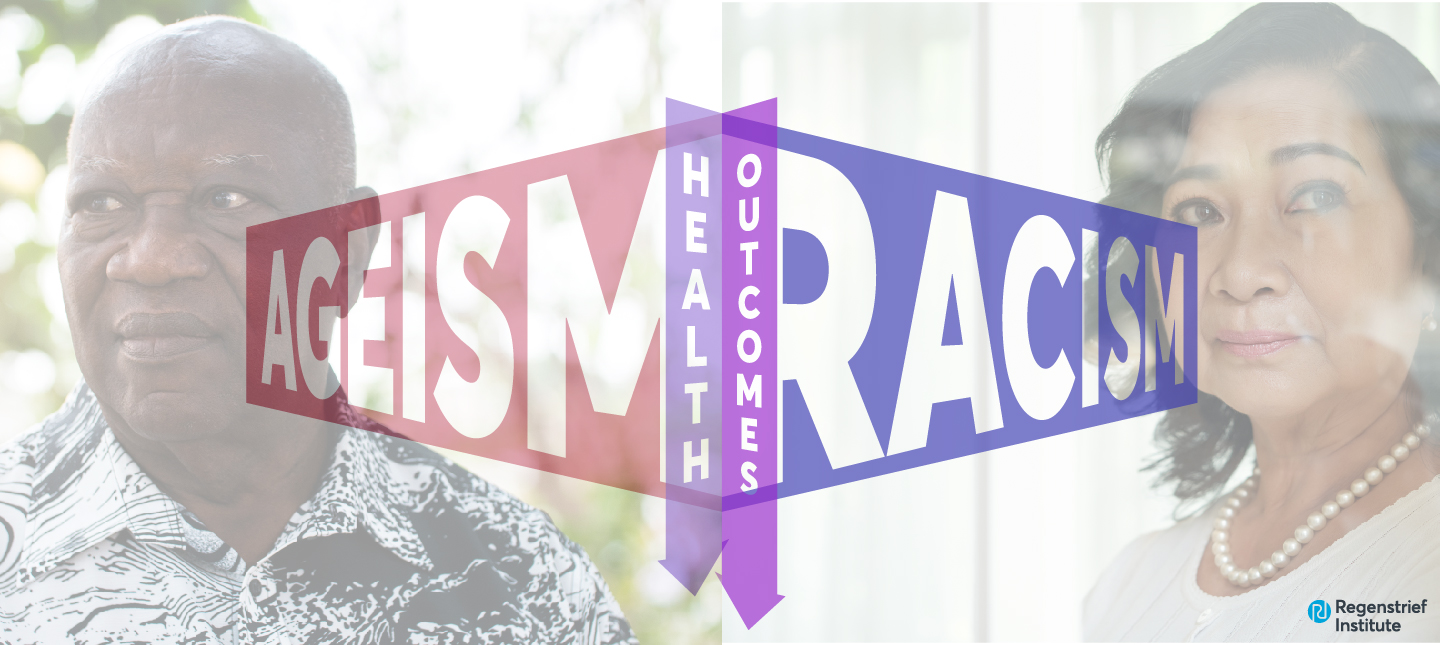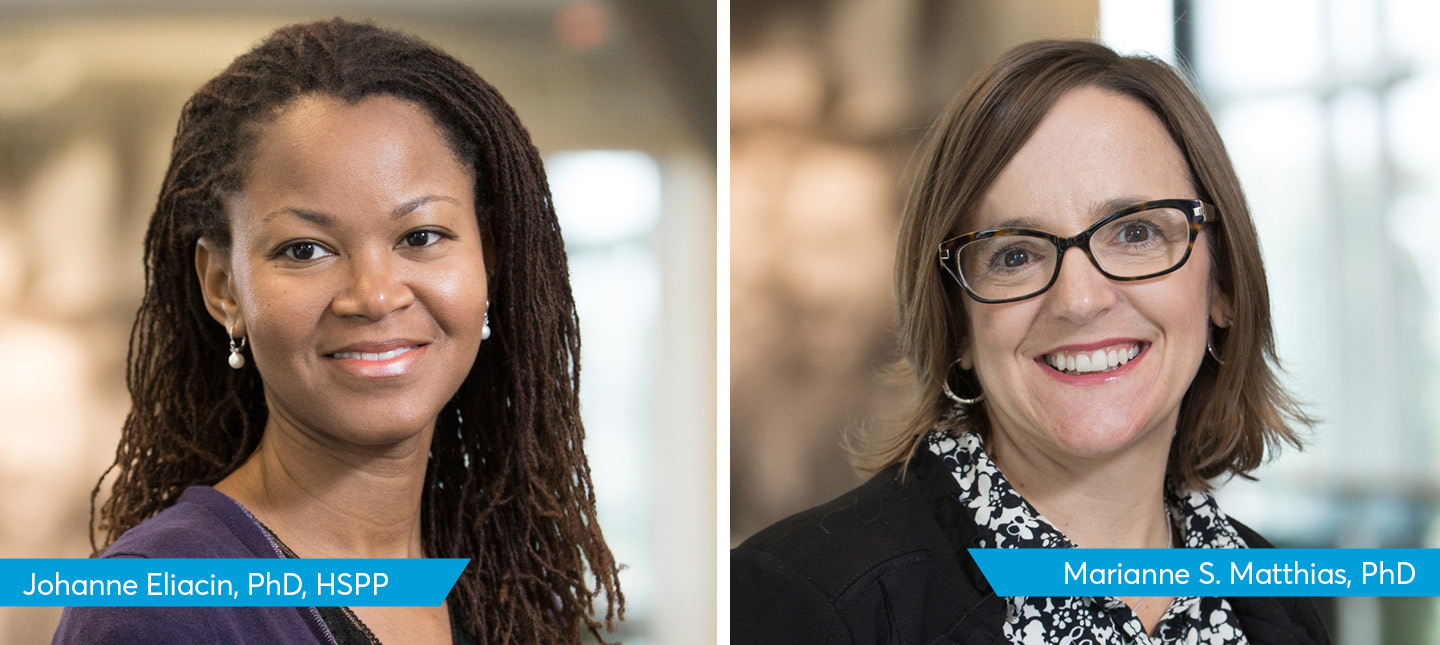Advocating for and supporting health equity
Regenstrief Institute Research Scientist Kathleen Unroe, M.D., MHA, is a co-author of a position paper from the American Geriatrics Society delving into the intersection of structural racism and ageism in healthcare. The paper presents a framework to describe these concepts whose negative effects on health outcomes can be amplified when they intersect.
The goal of the position paper is to help identify healthcare inequality concerns of individuals experiencing both ageism and racism and to promote solutions to these barriers to quality care. Dr. Unroe, who is also an Indiana University School of Medicine faculty member, notes that the paper issues a challenge to build more equitable systems of care including attracting more minorities to clinical professions and training all healthcare professionals to attend to the needs of those who may be experiencing disparities in care.
“I believe the intersection or racism and ageism is underexplored and underappreciated,” she said. “The cumulative effects over a lifetime of experiencing systemic racism clearly contribute to disparities of health outcomes. There is a body of literature that supports that reality. Ageism is also pervasive in our society. This paper brings together these concepts.”
Clinicians who care for older adults and researchers who study how to improve the health and quality of life of the aging population have long focused on the impact of ageism and how that affects and influences health. Addressing racism in healthcare has also activated many clinicians and researchers.
“This paper seeks to bring both of those concepts together to highlight the particular needs of individuals at risk of experiencing both ageism and racism. It challenges us to build more equitable systems of care. The goal of this work is to bring together these concepts and to examine the particular challenges posed by ageism and racism.”
A graphic in the position paper lists implications of the intersection of racism and ageism for racially and ethnically minoritized older people:
- Delayed/foregone care
- Exclusion from medical research
- Adverse health outcomes, including death and disability
- Morbidity and mortality from COVID-19
Dr. Unroe, a geriatrician and advocate for older adults, notes that meeting challenges at the intersection of ageism and racism includes increasing representation in the healthcare workforce of people from racially minoritized groups, supporting healthcare trainees from diverse backgrounds to achieve success and including race and age diverse voices in healthcare policy discussions.
Her research, clinical and policy interests are focused on improving quality of care — especially access to palliative and end-of-life care — for nursing home residents of all races and ages. She led OPTIMISTIC, a novel eight-year, $30.3 million CMS-funded demonstration project aimed at improving quality of care and reducing unnecessary hospitalizations of those who live in nursing homes. She is the founder and chief medical officer of Probari, a business designed to disseminate the successful OPTIMISTIC clinical care model. Regenstrief Institute is an investor. A long-time member of the American Geriatrics Society, Dr. Unroe has served as chair of the organization’s public policy committee.
“Ageism is pervasive in our society. It is also linked to ableism. And we see the consequence of that in choices we make about how to build our communities and how we build systems and structures to care for people with cognitive and physical disabilities. So, building communities that make it more difficult for people with physical and cognitive disabilities to move throughout them is tied to both ageism and ableism. The lens that we as professionals who care for an older population bring adds another dimension to the conversation of racism and ageism,” said Dr. Unroe.
In a news release, the American Geriatrics Society said “Exploring the Intersection of Structural Racism and Ageism in Healthcare,” published in Journal of the American Geriatrics Society, is “grounded in the Society’s belief that a just healthcare system is one that recognizes that membership in groups — whether classified by age, race, gender, socioeconomic status or other descriptors — should not affect the quality of the healthcare that is delivered or who is trained to deliver that care.”
Authors of the paper are Timothy W Farrell, M.D., University of Utah Spencer Fox Eccles School of Medicine and VA Medical Center, Salt Lake City; William W. Hung, M.D., MPH, Icahn School of Medicine at Mount Sinai; and James J. Peters, VA Medical Center, New York; Kathleen T. Unroe, M.D., MHA, Regenstrief Institute and IU School of Medicine; Teneille R. Brown, J.D., Center for Law and Biomedical Sciences, University of Utah; Christian D. Furman, M.D., MSPH, University of Louisville; Jane Jih, M.D., MPH, University of California; Reena Karani, M.D., MPHE, Icahn School of Medicine at Mount Sinai; Paul Mulhausen, M.D., Iowa Total Care; Anna María Nápoles, PhD, MPH, National Institutes of Health; Joseph O. Nnodim, M.D., MBBS, University of Michigan Medical School; Gina Upchurch, MPH, Senior PharmAssist and University of North Carolina at Chapel Hill; Chanel F. Whittaker, PharmD, University of Maryland School of Pharmacy; Anna Kim, American Geriatrics Society; Nancy E. Lundebjerg, MPA, American Geriatrics Society; and Ramona L. Rhodes, M.D., MPH, Central Arkansas Veterans Healthcare System, University of Arkansas, and University of Texas Southwestern Medical Center.
About Kathleen T. Unroe, M.D., MHA
In addition to being a research scientist at Regenstrief Institute, Kathleen Unroe, M.D., MHA, is an associate professor of medicine at Indiana University School of Medicine and a practicing geriatrician.
About Regenstrief Institute
Founded in 1969 in Indianapolis, Regenstrief Institute is a local, national and global leader dedicated to a world where better information empowers people to end disease and realize true health. A key research partner to Indiana University, Regenstrief and its research scientists are responsible for a growing number of major healthcare innovations and studies. Examples range from the development of global health information technology standards that enable the use and interoperability of electronic health records to improving patient-physician communications, to creating models of care that inform practice and improve the lives of patients around the globe.
Sam Regenstrief, a nationally successful entrepreneur from Connersville, Indiana, founded the institute with the goal of making healthcare more efficient and accessible for everyone. His vision continues to guide the institute’s research mission.
About IU School of Medicine
IU School of Medicine is the largest medical school in the U.S. and is annually ranked among the top medical schools in the nation by U.S. News & World Report. The school offers high-quality medical education, access to leading medical research and rich campus life in nine Indiana cities, including rural and urban locations consistently recognized for livability.










